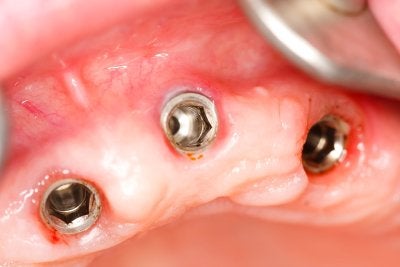Your dentist may recommend that you get dental implants near Bel Air, MD if you have undergone a tooth extraction, have a severely chipped tooth, or are missing one or more teeth. Dental implants are a safe, effective cosmetic dentistry alternative to dentures and dental bridges. Here is a look at some of the reasons that you may want to discuss dental implants with your dentist.

You are missing one or more teeth.
Your dentist can replace one or more missing teeth via a relatively simple cosmetic dentistry procedure using dental implants. A dental implant is a prosthetic tooth that is attached to a titanium rod that is implanted directly into your jawbone. The prosthetic tooth can be customized to match the size, shape, and color of your remaining natural teeth. This means that it looks almost unnoticeable when you talk and smile.
You are looking for an alternative to dentures or a dental bridge
Dentures and dental bridges are other cosmetic dentistry options that can be used to repair a chipped tooth or replace missing teeth. If you are missing all of your teeth, your dentist will recommend that you receive dentures. However, if you are only missing one or two teeth, dental implants are a better cosmetic dentistry solution. Because dental implants are anchored to the jawbone, they prevent many dental problems associated with missing teeth. Dental implants will ensure that you don’t suffer from jawbone loss, shifting teeth, or facial deformity. Dentures are not anchored to the jawbone, and thus do not prevent these problems.
You are in good physical health and committed to future dental care.
Your dentist will determine if you are a good candidate for dental implants. To be a good candidate, you must be committed to maintaining your future dental care. You will need to brush, floss, and use mouthwash at home. You must also visit your dental clinic at least every six months for dental cleanings and exams. You may not be a good candidate for dental implants if you have severe bone loss or advanced gum disease, smoke regularly, or have certain existing medical conditions.

